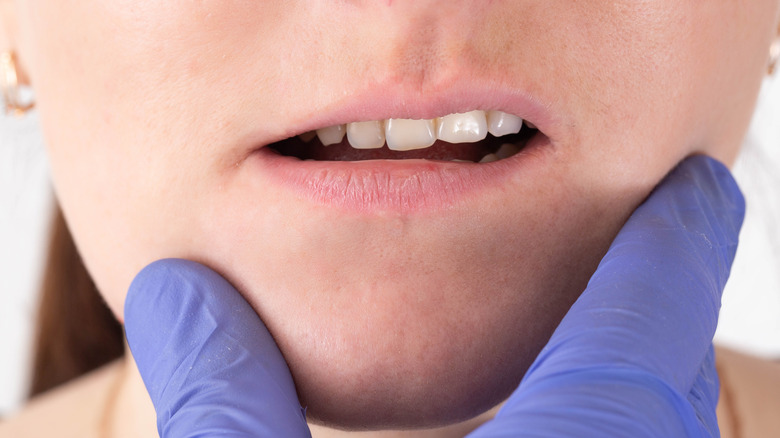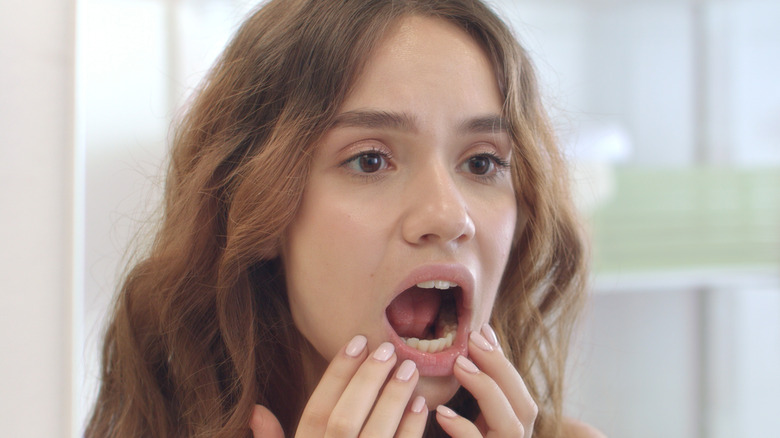What Does It Mean When You Have Constant Dry Mouth?
Dry mouth isn't a completely rare health condition. As a matter of fact, it's completely normal to have dry mouth periodically, according to NHS Inform, and 10% of all people experience the condition at some point, per MedicineNet. However, dry mouth doesn't occur only when there's a feeling of dryness in your mouth. Conditions like bad breath, difficulty in chewing, speaking or swallowing, sore throat, chapped lips, persistent cough, a change in sense of taste, nausea, white tongue, and even tooth decay, have all been associated with the condition.
The good news, however, is that dry mouth generally goes away and can be gotten rid of with certain home remedies, like sucking on ice cubes, chewing sugar-free gum, and reducing alcohol intake, per NHS Inform.
While dry mouth, on its own, isn't a serious medical condition to beworried about, paying a visit to your doctor might be a good idea if it becomes persistent as it could be a symptom of a worrisome health condition, notes Healthline.
What your constant dry mouth may mean
The simple meaning of dry mouth is lack of saliva in your mouth to keep it wet, per Medical News Today, and it is mostly caused by dehydration, writes NHS Inform. When your body lacks enough fluid, it becomes difficult to produce saliva, which plays an important role in digesting your food by damping and breaking down food easily, according to Healthline.
One recognised quick fix is to ensure that you stay constantly hydrated, Medicine Net advises. But persistent dry mouth despite regular hydration should be a cause of concern. While constant dry mouth is not uncommon amongst older people, for adults and younger people, it may be a result of a number of medical challenges. You could be reacting badly to certain medications, one of which includes chemotherapy drugs, per Healthline.
It could also be a result of health conditions like diabetes, Alzheimer's disease, and a stroke (via Mayo Clinic). Certain lifestyle choices like smoking and chewing tobacco can reduce the quantity of saliva in your mouth, leading to dry mouth, Web MD notes.

